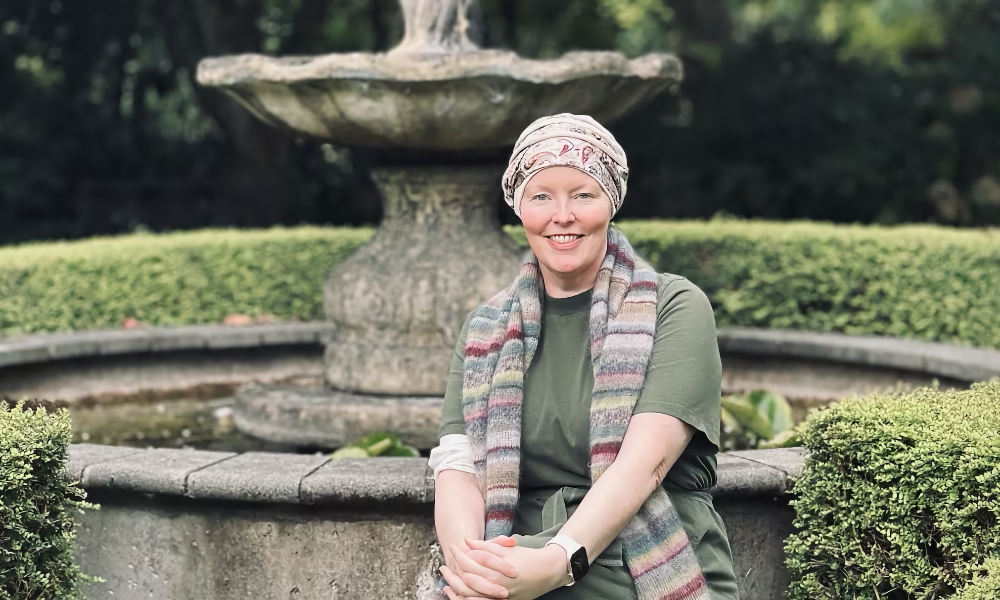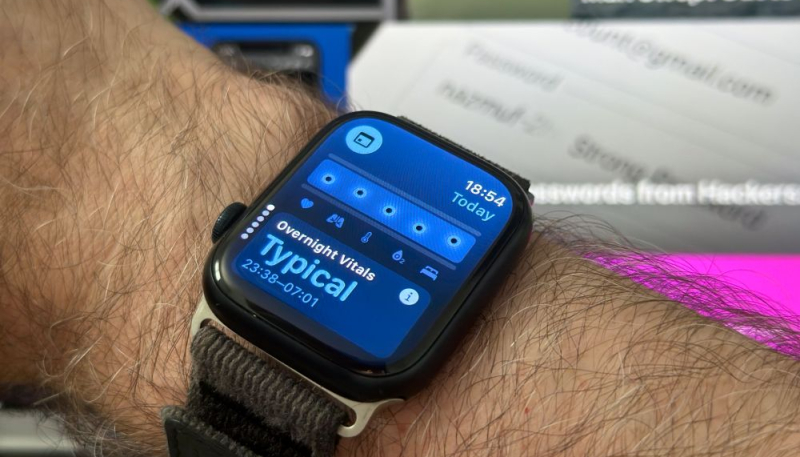The Apple Watch Series 10’s headline feature is its Vitals app, which monitors several health metrics as you sleep during the night. Now, the The New Zealand Herald reports that the feature has given a New Zealand woman a fighting chance against cancer by alerting her that her overnight metrics were abnormal.
Amanda Faulkner, a consultant psychiatrist in Napier, New Zealand had purchased an Apple Watch Series 10 last year. The Series 10’s Vitals app monitors multiple health metrics – including overnight heart rate, respiratory rate, wrist temperature, blood oxygen, and sleep duration – to provide a better understanding of the wearer’s daily health status, warning if any of the user’s tracked health metrics were out of range during the night.
Faulkner told the Herald that her Apple Watch alerted her that that her resting heart rate was elevated multiple times during the night. While her heart rate had historically came in at around 55 beat per minute, the Watch reported that it was elevating during the night to the 90s. She initially thought that the Watch “must be faulty.”
“I thought I was probably just a bit anaemic,” she told the Herald. Faulkner believed that she was in good physical shape. She and her husband led an active life, and had recently gone on an Australian hiking expedition.
When the Apple Watch continued to alert her about the issue, she paid a visit to the general practitioner, and she shared the Vitals data with the medical professional from her Apple Watch. (The Apple Watch can share readings of this type, including the Watch’s ECG feature, via a PDF file.)
Faulkner’s doctor immediately referred her to the hospital’s emergency department. Doctors there ran tests, diagnosed her with Acute Myeloid Leukaemia, a rare type of blood cancer. The doctors told her that if she had delayed her doctor visit by just a few days, “she could have died from her untreated cancer and its complications.”
The following day (January 9), she was transferred to Palmerston North Hospital.
Faulkner is not out of the woods yet. She has been in Palmerston North Hospital ever since, receiving chemotherapy.
In July she’s booked for a stem cell transplant in Wellington, which will replace her bone marrow with that of a donor’s from Europe – essentially giving her new bone marrow and a new immune system (July is the earliest staffing and available bed space allows).
“Hand on heart, if it wasn’t for my smartwatch constantly nagging me, I wouldn’t have even noticed something was wrong,” Faulkner said. Amanda’s husband Mike, said the Apple Watch increased his wife’s chances of beating her cancer.

Faulkner has since been in Palmerston North Hospital, receiving chemotherapy.
A stem cell transplant is scheduled for July, where her bone marrow will be replaced with that of a donor’s from Europe. The procedure will essentially replace Faulkner bone marrow, providing her a new immune system.
The stem cell procedure itself has a 20% chance of mortality, and as a health professional herself, she knows the procedure is risky.
“It’s pretty confronting.”
Amanda and Mike are trying to be positive, and say the Apple Watch made a “life-changing difference” by giving Amanda a head start in beating the cancer.
Mactrast wishes Amanda a good response to the procedure and a fast recovery from cancer, and we hope to report about her full recovery in the very near future.
(Photo: Mike Faulkner – New Zealand Herald)


